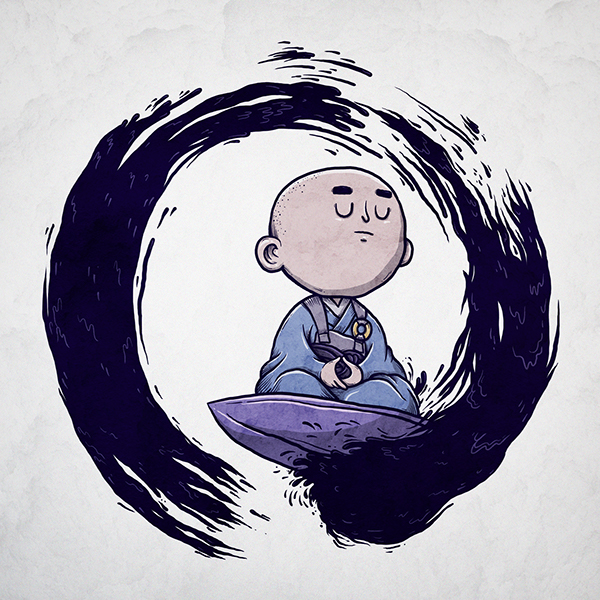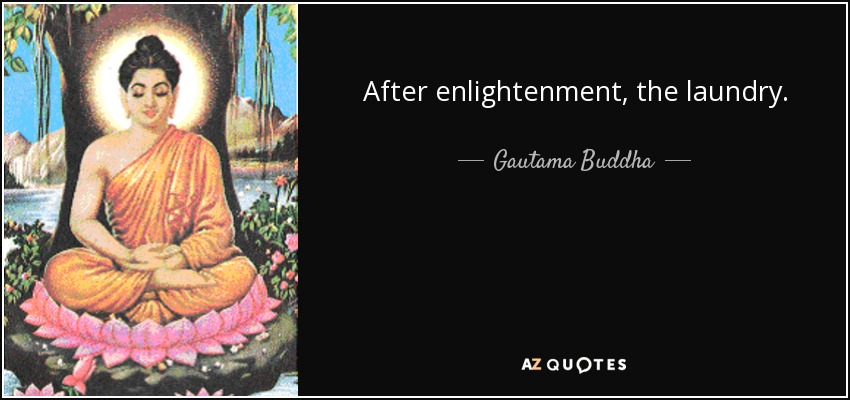Dear All,
We now turn to Master Dogen's Genjo Koan, perhaps the clearest and most direct entrance into Master's Dogen vision. We begin from the start of the chapter on p. 51, ending at the bottom of p. 55 (right BEFORE the sentence, "And so, Dogen next addresses these questions:")
Dogen presents a series of ways of encountering this life-self-world:
- Our ordinary vision of division, me and you, high and low, good and bad, here and there ...
- A vision which sweeps that away into wholeness, peace, resolution ...
- A vision in which all of the above is encountered to be true at once, two faces of a no-sided coin ...
I believe that it is very much a dance of inter-identity of the so-called "relative and absolute", that "mountains are mountains when we first start to practice ... then we realize mountains are not mountains, ... then mountains are mountains again,and yet, are not know the same way as before")
- And yet, even with such wisdom, life is hard sometimes. Easy sometimes, but hard sometimes.
I would like you to play this game, following the wording, grammar and structure of Dogen's four phrases with something in your life or of interest to you. For example, if I were to take football ...
Now, without reading what anyone else has written until after, please write the same about any activity or situation in your life.
Gassho, Jundo
STLah
Sorry to run long
We now turn to Master Dogen's Genjo Koan, perhaps the clearest and most direct entrance into Master's Dogen vision. We begin from the start of the chapter on p. 51, ending at the bottom of p. 55 (right BEFORE the sentence, "And so, Dogen next addresses these questions:")
Dogen presents a series of ways of encountering this life-self-world:
- Our ordinary vision of division, me and you, high and low, good and bad, here and there ...
- A vision which sweeps that away into wholeness, peace, resolution ...
- A vision in which all of the above is encountered to be true at once, two faces of a no-sided coin ...
I believe that it is very much a dance of inter-identity of the so-called "relative and absolute", that "mountains are mountains when we first start to practice ... then we realize mountains are not mountains, ... then mountains are mountains again,and yet, are not know the same way as before")
- And yet, even with such wisdom, life is hard sometimes. Easy sometimes, but hard sometimes.
I would like you to play this game, following the wording, grammar and structure of Dogen's four phrases with something in your life or of interest to you. For example, if I were to take football ...
When things are seen as separate in the Buddha’s teachings, there is the ball, there is the distant goalline, there are plays to move us from the former to the latter, there is winning and losing, the first half and the second half, there is my team and your team, spectators and judges that stand apart.
When the myriad things are realized as each without an individual self, there is no ball and no separate goalline, no plays, no points to measure, no clock, no divided teams, no seers/seen and nothing to judge.
In the Buddha Way, we must leap clear of and right through both the view of fullness and the view of lack; thus there are again the ball and goalline, plays, winning and losing, halfs and teams, spectators and judges.
Yet even so, sometimes we fumble although we had the ball, sometimes we get blocked although we want to score.
When the myriad things are realized as each without an individual self, there is no ball and no separate goalline, no plays, no points to measure, no clock, no divided teams, no seers/seen and nothing to judge.
In the Buddha Way, we must leap clear of and right through both the view of fullness and the view of lack; thus there are again the ball and goalline, plays, winning and losing, halfs and teams, spectators and judges.
Yet even so, sometimes we fumble although we had the ball, sometimes we get blocked although we want to score.
Gassho, Jundo
STLah
Sorry to run long









Comment